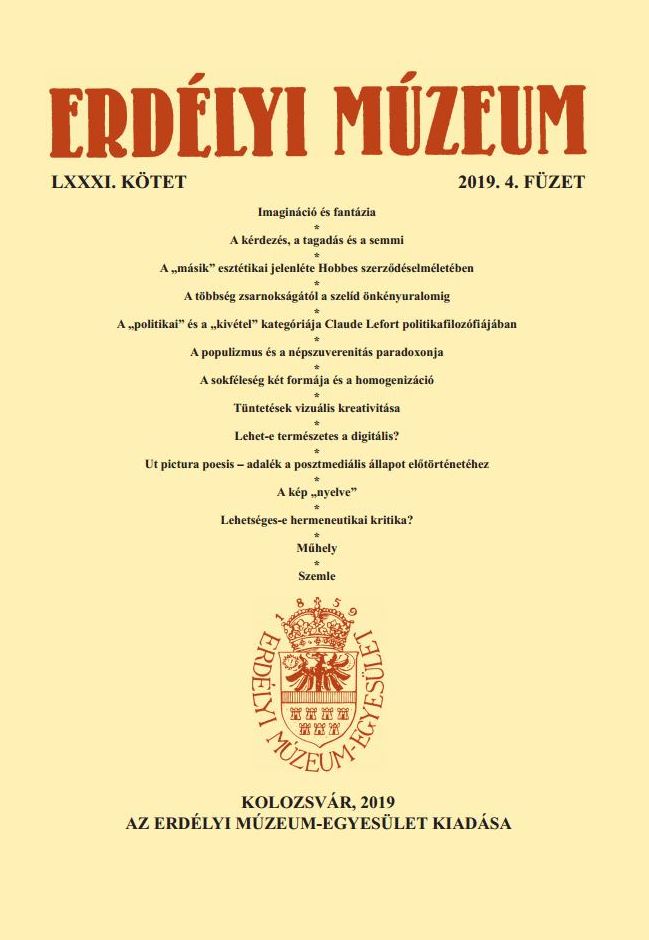A „politikai” és a „kivétel” kategóriája Claude Lefort politikafilozófiájában
The Categories of “Political” and “Exceptional” in Claude Lefort’s Political Philosophy
Author(s): Lajos András KissSubject(s): Philosophy, Political Philosophy, Social Philosophy, Contemporary Philosophy
Published by: Erdélyi Múzeum-Egyesület
Keywords: politics; political; modern democracy; post-fundamentalism; rule; exception
Summary/Abstract: The present paper focuses on a central issue of the political philosophy of Claude Lefort, namely the special forms of the formation and functioning of modern democracy. Lefort distinguishes clearly the ontic level of politics (parties of the parliament, government and other institutions, etc.) and the ontological level of the political (the symbolically constructed forms of rule). According to Lefort, the rule moves to an empty place, as a consequence of the modern democratic revolutions. From this moment, the rule belongs to those who speak on behalf of the people, but the people is actually formed from the mass of the residents, by their speeches. Therefore, the modern democracy lives under conditions of constant uncertainty, because of its continuous pressure of legitimacy. Sometimes, it can bring modern democracy close to the edge of a precipice; and a kind of totalitarianism seems to be a solution.
Journal: Erdélyi Múzeum
- Issue Year: LXXXI/2019
- Issue No: 4
- Page Range: 32-44
- Page Count: 13
- Language: Hungarian

